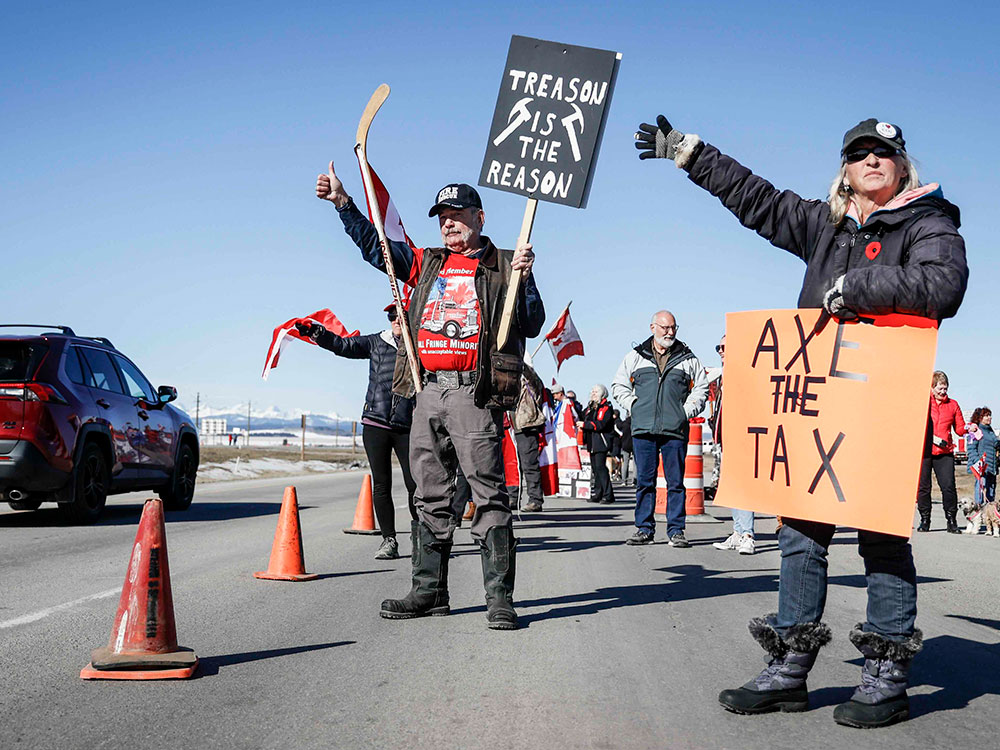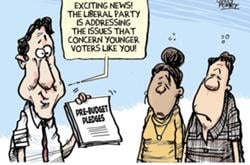The costs of climate change are piling up, yet almost 70 per cent of Canadians oppose the recent increase in the federal carbon price.
Carbon prices work because when fossil fuels cost more, people use less of them. Carbon pricing gives citizens a choice to reduce emissions or to pay the tax, whatever is cheaper. By not prescribing technologies, households are free in choosing the cheapest ways to reduce emissions, be it installing a smart thermostat, switching to a heat pump for their next home heating system or purchasing an electric vehicle as their next car.
Canada’s carbon pricing is designed to be fair and effective. By putting a clear price on carbon emissions, the tax — along with other climate policies — has reduced emissions by about eight per cent since 2019.
The carbon tax actually returns most revenues to households and the data is clear that Canadians are better off with carbon pricing than without it. As an extra bonus, large industries are not even subject to the full carbon price.
But none of these benefits of carbon pricing outweigh the highly visible costs that citizens experience at the pump — with an average cost increase of 3.3 cents per litre — or on their home heating bill.
Climate misinformation further puts the policy at risk as politicians skeptical of climate change vilify it in the hopes of becoming more popular.
Canada’s large government spending creates additional skepticism regarding the use of revenues from carbon pricing. This begs the question of whether large welfare states like Canada are especially prone to public outcry about tax increases.
Why the hate?
Behavioural scientists have long known that people tend to have a stronger emotional response to losses as opposed to equivalent gains. Even if the gains from avoided climate disasters are much greater than the costs of carbon pricing, that extra 3.3 cents carries greater weight than the benefits that may be at times hard to perceive. In this regard, Canada isn’t unique.
Our recent study published in the Journal of Environmental Management uses the International Social Survey Programme Environment Module to assess cross-national differences in support for carbon taxes in 33 countries, focusing on size of government as a contextual factor.
ISSP is a cross-national collaboration platform conducting annual surveys in most high- and medium-income countries on social science topics, including environmental and climate attitudes.
Our analysis confirms that citizen support for carbon taxes is universally low at 52 per cent on average across all cases. Switzerland showed the highest support at 66 per cent and Latvia the lowest at 38 per cent.
Canada’s recent polls suggest a similar outlook, with half of the population opposing carbon pricing altogether. These numbers speak to the high salience of carbon pricing and public prioritization of losses over gains, when the focus is on pricing emissions.
In our study, individual factors, such as left-wing political orientation, higher education and an eschewing of materialistic values are the strongest predictors of support for carbon taxes. However, these traits tend to be difficult to change in any meaningful sense, at least not without a great deal of time and effort.
Interestingly, we find that size of government — measured as government revenues as a share of gross domestic product — matters.
A larger government size is associated with lower support for carbon taxes. This suggests that any increases in carbon taxes in countries with large governments, such as Canada, must include clear expectations for how revenues will be recycled or how other taxes will be lowered if they are to gain widespread support.
But even these rationales might not be enough to change the strong anti-tax discourse, as seen through recent attempts by the Liberal government to promote carbon tax rebates and the benefits of low-carbon investments.
Too big to tax?
Is big government big trouble for Canada’s climate future? Perhaps for the carbon tax, but not necessarily for other effective and less visible climate policies. Climate regulations, including zero-emission vehicle sales mandates, low-carbon fuel standards, clean electricity regulations and even industrial output-based pricing systems receive widespread public and stakeholder support at 70 to 90 per cent without direct cost visibility at the gas pump.
Past studies suggest that passive public support in the form of broad policy acceptance without high policy awareness can be sufficient to implement effective climate policy.
Furthermore, while regulatory policy is generally more expensive than carbon pricing, it can be a more flexible approach that allows for rapid emissions reductions at lower political costs. In fact, Canada already has many of these regulations that can be ramped up with or without carbon pricing. Some examples include the recent electric vehicle availability standard, a clean fuel standard, draft clean electricity regulations and draft oil and gas methane regulations.
If carbon pricing seems costly and regulations seem cheap (or invisible), then Canada still has a chance at building a better future for our children. Should we fail on both carbon pricing and regulations, the big government will need to get even bigger to collect more taxes for addressing climate disasters.![]()
![]()
Read more: Energy, Federal Politics, Alberta

















Tyee Commenting Guidelines
Comments that violate guidelines risk being deleted, and violations may result in a temporary or permanent user ban. Maintain the spirit of good conversation to stay in the discussion and be patient with moderators. Comments are reviewed regularly but not in real time.
Do:
Do not: